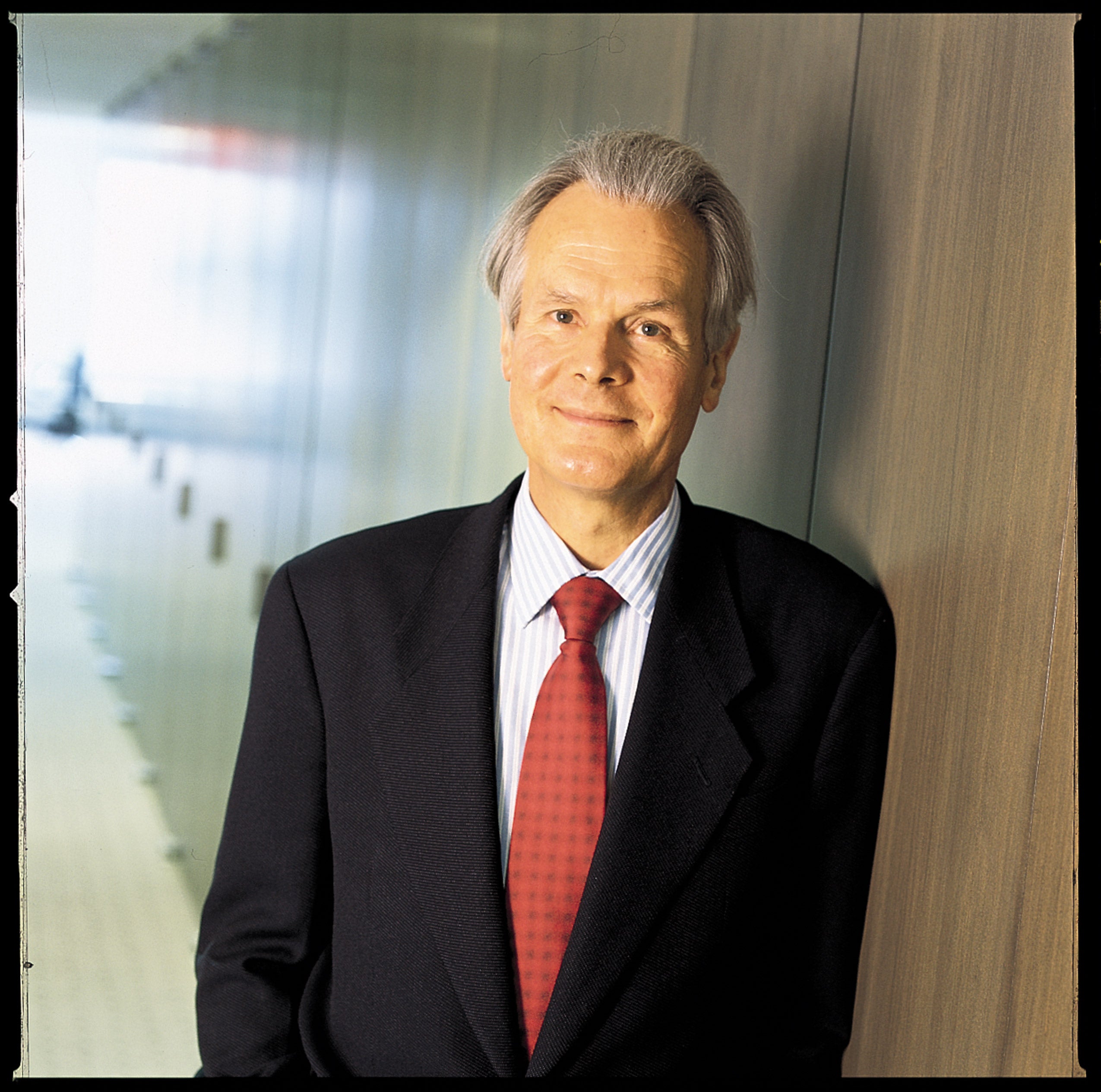Jenö Staehelin LL.M. ’65 is the Swiss ambassador to the United Nations. A member of the HLS Dean’s Advisory Board, Staehelin last fall hosted more than 200 alumni at a dinner with UN Secretary General Kofi Annan.
How do you think your legal training at Harvard Law School has helped you do your job as a diplomat?
What you learn as a lawyer is that every problem has at least two sides. And to make your case you’d better understand the position of the other side, and the reasons for that position. Perhaps more important, you have to ask the right questions before you try to find a solution. We [at the UN] are trying to find solutions, and I think to ask the right question is the most important lesson I learned at Harvard Law School–because then the rest follows.
Before being named Swiss ambassador, you held several other senior positions in the international arena. What has been the most rewarding part of this work?
I think the most rewarding part was seeing the changes that occurred in Europe between 1989 and 1992–changes that brought freedom, democracy, and the rule of law. And it was rewarding to help alleviate the misery and suffering that this transition brought to those countries by working on programs of financial and technical assistance. For me, this was also rewarding because I have a mother who comes from Eastern Europe and, therefore, I was emotionally engaged.
How has Switzerland’s reputation as a neutral country had an impact on your job?
It has an impact because the concept of neutrality has had its good times and its bad times. There were periods when neutrality was considered a welcome contribution to peace and security. And then there were periods when it was considered immoral because it meant not taking sides in a conflict between good and bad. So to explain what Swiss neutrality is–and what it is not–can be a great challenge.
You were appointed to your current position the same year that fellow HLS graduate Mary Robinson LL.M. ’68 was named the UN High Commissioner for Human Rights. Have you had the opportunity to work with her?
Yes. In fact, I participated with her just two days ago in a debate in the Security Council on protecting civilians in armed conflicts. This is a very important issue because today those who suffer most in conflicts are not members of the armed forces. Eighty to 90 percent of all victims of armed conflict are civilians, many of them women and children. When it comes to general support of human rights, Mary Robinson plays an extremely important and very courageous role, and I admire her for that.
What do you say to the people who argue that we no longer need the United Nations?
I think we need the United Nations more today than we did 20 years ago. Twenty years ago it was almost impossible to do anything. There was the Eastern bloc on one side and Western bloc on the other. Today the world in a certain way is safer, but it’s also more dangerous. There are many more conflicts popping up because there is less control. Cooperation has become much more important, and the potential to do something good has increased.
